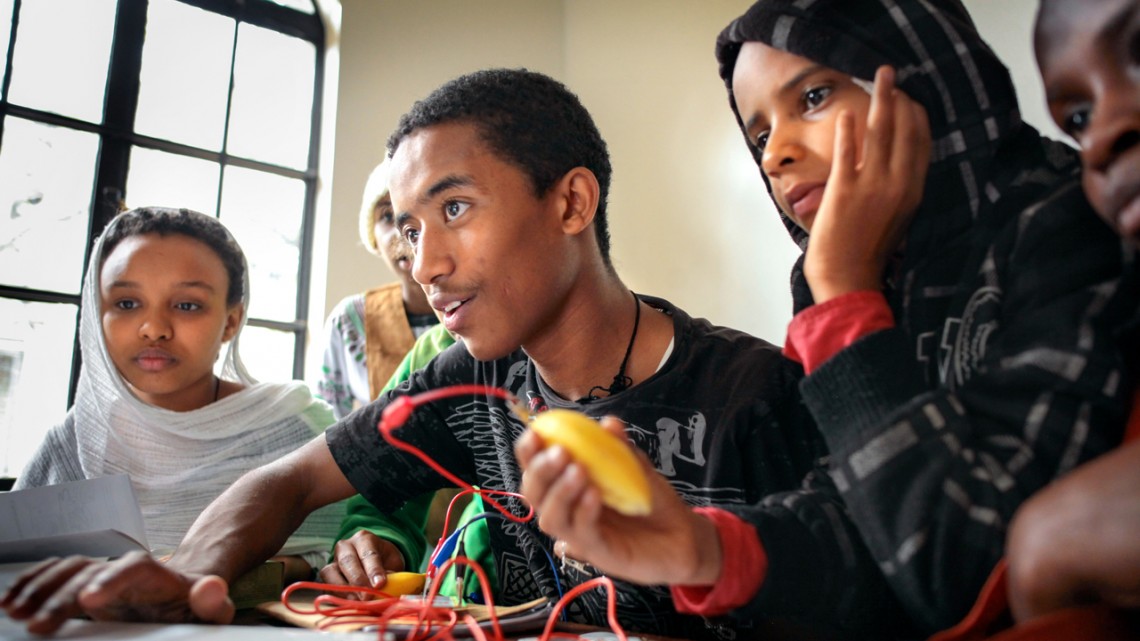
Technology
What is Cubic Stylization?
Children at Kenyan refugee camp are working together to develop a rudimentary video game about Malaria. Many of the children are inputting their ideas through collaboration and more than often this results in disagreement but also cultural understanding.
Students who participated in what is now known as the ‘Nairobi Play Project’ learned about computing in the context of conflict. Image Credit: Cornell.edu
"Friction is not just a source of conflict -- it's a source of learning," said Ian Arawjo, doctoral student in the field of information science and first author of "Computing Education for Intercultural Learning: Lessons From the Nairobi Play Project.”
In fact, a new study from Cornell University has concluded how computational education in the ‘Nairobi Play Project’ breaks down cultural barriers and fosters intercultural learning. Students in the program learn basic computational sciencses and develop community-focused video games.
Teacher in the Nairobi Play Project demonstrates computational tools to students. Image Credit: Cornell.edu
"My mother is OK with [the class] because I am the first person in the family using a computer," a Somali girl told interviewers.
"Our teacher told us you must sit together -- for example, you're Congolese, you're Sudanese. They mix us. ... We have to communicate. Because there is only one computer. You cannot make something without the computer,” says a boy in the program.
Learn more about breaking cultural barriers:
The structure of the computational classes has given an opportunity for students to form unlikely friendships from different backgrounds.
“Programming requires students to consider a problem from the computer's perspective -- similar to seeing from other people's points of view,” says Arawjo. “Teachers built on these connections. Unfamiliar tools and debugging programs also tended to inspire humor. One thing that emerged from this work is that the line between computational learning and intercultural learning is not so clear.”
Students have designed a game to inspire their computation. Image Credit: Cornell.edu
"Conflict is present," Arawjo said. "But it also can be resolved, and the resolution of conflict offers powerful opportunities for learning."
Source: Cornell University